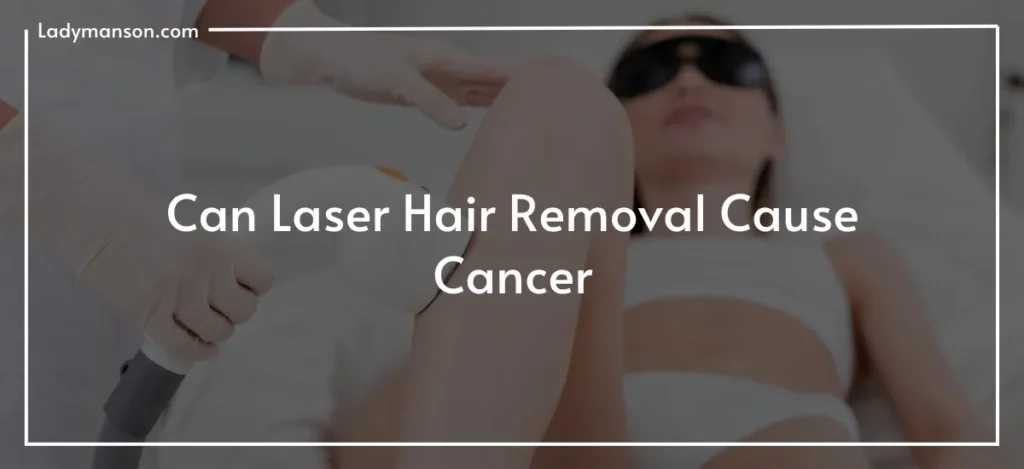You might be interested in laser hair removal if you’re bored with using standard hair removal techniques like shaving. Laser hair treatments provided by a dermatologist or other competent and educated professional prevent the follicles from producing new hair.
Laser hair removal is generally considered to be safe. Additionally, the technique has no known long-term negative effects. So, does laser hair removal cause cancer? Here’s everything you must know.
Much research hasn’t been done on the long-term consequences of laser therapy, including the potential for an elevated risk of cancer. Following laser hair removal, several studies have noticed alterations in atypical moles.
They advise anyone with a personal or family history of skin cancer or atypical moles to exercise caution while using cosmetic laser therapy until further study is done to understand whether these alterations are potentially cancerous.
Non-ionizing radiation is used in laser treatment in the form of a focused light source that emits a very small laser beam. When a laser beam kills hair follicles (the cells from which hair grows), hair no longer grows from those follicles. This is known as laser hair removal. The ultraviolet (UV) wavelengths used in laser therapy differ from the UVA and UVB wavelengths present in sunlight, which are known to harm cell DNA and lead to skin cancer.
The method used for laser hair removal is known as selective photothermolysis. The heat destroys cells with a lot of pigment from a laser (color). Dark hair absorbs the greatest heat since it has a lot of pigment. Hair prevents hair from growing by transferring heat to the hair follicles and destroying them.
For the process to be effective, a hair follicle must be in the anagen, or growth, stage. Most patients require numerous laser treatments because the phases of the follicles change over time.
Suppose you are wondering whether can laser hair removal on nipples cause cancer. Then you should be aware that laser hair removal on the nipple/areola area is safe. The nipple itself will not be pulsed with the laser during therapy; instead, hairs on the paler surrounding regions will be the focus. Using caution while treating the areola is crucial since it contains pigment and is a sensitive body region.
So, if you want to know can laser hair removal cause skin cancer, here’s the answer for you. The possibility that laser therapy might make skin cancer more likely is one worry some people have. Exposure to specific UV light types has been linked to skin cancer. Sunlight and artificial light sources, including tanning beds, expose us to UV radiation. It is a high-energy wavelength that is invisible to humans.
Since UV radiation is so potent, it has the potential to alter the genetic makeup of our cells. The erroneous section of the DNA might become damaged, leading to the malignant transformation of skin cells. For this to develop, it often needs a long time of exposure to sunlight or other UV kinds. Many indications of aging, such as wrinkles, are also caused by the same sort of damage.
Despite using light energy, laser hair removal does not use UV radiation. Targeting wavelengths for hair follicles have a longer wavelength and utilize less energy. Having laser hair removal won’t enhance your chances of developing skin cancer because there is no chance that they will harm the genetic information in your cells.
So, If you are wondering can laser hair removal cause cancer, and if you are planning to undergo a laser hair removal treatment, then worry no more because it is safe for your skin. But ensure to do it from a professional dermatology center.
Frequently Asked Questions
- Does laser hair removal have health risks?
As laser therapy does not employ the UVA and UVB wavelengths present in sunlight, which is known to destroy cell DNA and result in skin cancer, lasers are also touted as being safe.
Rarely, laser hair removal might alter the texture of the skin by causing blistering, crusting, scarring, or other problems. Graying of treated hair or excessive hair growth surrounding treated regions are unusual but possible adverse effects, especially for those with a darker complexion.
- Is laser hair removal harmful long-term?
It doesn’t seem like the surgery has any long-term health problems. However, some people who have had laser hair removal could encounter minimal adverse effects.
Before having a treatment done on a larger region of skin, people should ask their dermatologist to evaluate how a tiny patch of skin responds to the therapy. If you want to have laser hair removal done in delicate places like your private parts, it is thought to be completely safe.
- Does laser skin removal cause cancer?
The hair removal lasers can’t cause skin cancer because they don’t include UV radiation. You could still be concerned that the therapy would increase your chance of developing further cancers. Laser hair removal is quite safe when carried out by a qualified medical professional at an established facility. There is no proof that laser therapy makes you more likely to develop cancer or other illness.
- Does laser hair removal give out radiation?
Ionizing radiation is not used in laser hair removal. This indicates that your cells are unharmed and that the therapy cannot potentially cause cancer. During a laser hair removal procedure, very little radiation is released.
See Also:

